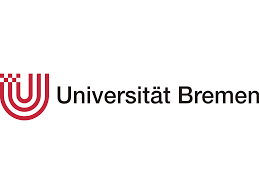University of Bremen: Better transport chains for Cameroon
International research projects are possible despite Corona. This is shown by the German-Cameroonian project NAVEL – Logistics Innovation Center Ngaoundéré, in which scientists from the University of Bremen are playing a leading role. The goal is innovations in Cameroon’s logistics.
How can you change and improve the milk supply chain so that less milk is lost due to cooling problems? This is just one of the many questions that the international research project “NAVEL – Logistics Innovation Center Ngaoundéré” deals with. The international project funded by the Federal Ministry of Education and Research (BMBF) with 300,000 euros aims to network various players in the logistics sector around the University of Ngaoundéré in the interior of Cameroon and to enable them to implement innovations.
Build reliable and transparent supply chains
The example with milk logistics is not just made out of thin air, it is very specific. “On the one hand, this is a technical problem because the temperature of the milk should be monitored efficiently throughout the entire supply chain and adapted to local conditions. On the other hand, this is a logistical and organizational task in order to bring together loose and unofficial supply chains and to operate them reliably at the moment, ”explains Anna Förster from the University of Bremen. The computer scientist and her colleague and project manager Hans-Dietrich Haasis from the Department of Economics are involved in the project from the University of Bremen. “In answering the questions and working out an accepted solution, there are considerable challenges – among other things in connection with the transport infrastructure,
Develop and try out possibilities in the FabLab
In NAVEL, scientists from the fields of logistics and business administration from the University of Ngaoundéré work together with business representatives and, above all, young entrepreneurs. In a logistics laboratory attached to the University of Ngaoundéré, the participants are to come together to exchange ideas on technical and organizational innovations and develop specific ideas. “The model for this are the so-called FabLabs – workshops in which private individuals and traders have access to modern manufacturing processes for individual items and in which they can try out various options,” says Anna Förster. The laboratory should not only serve as a creative space for the development of new ideas,
In addition to Haasis and Förster, Professor Victor Tsapi (University of Ngaoundéré) and the Institute for Qualifying Innovation Research and Consulting GmbH (IQIB / Bad Neuenahr-Ahrweiler), which accompanies the project with a “train-the-trainer” concept, are also involved in the project involved. The project enables the University of Bremen to set up two half-time positions for research assistants over a period of two years.

